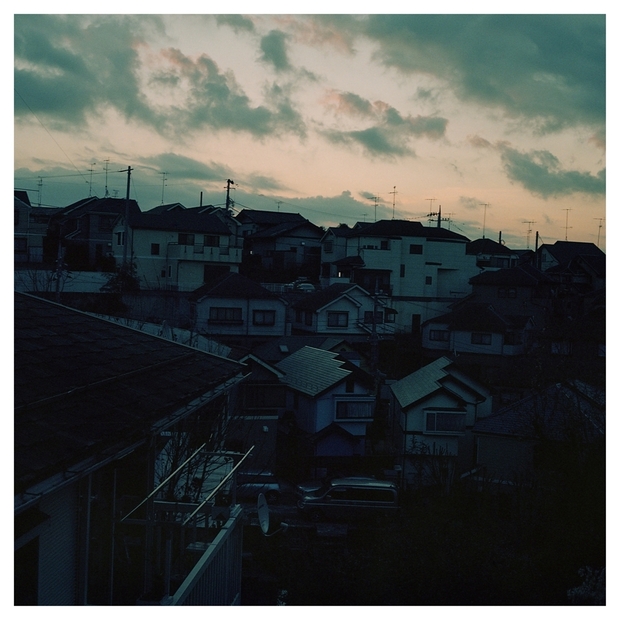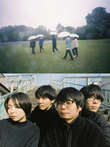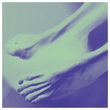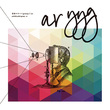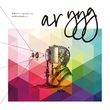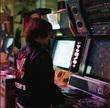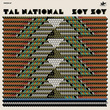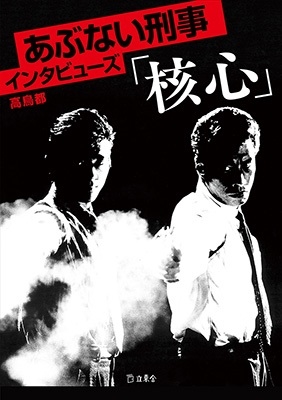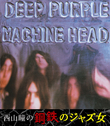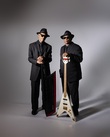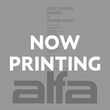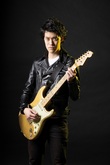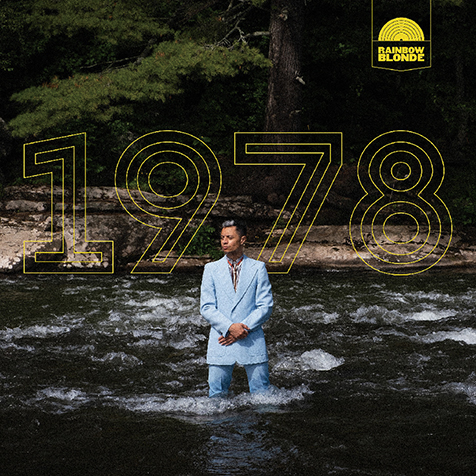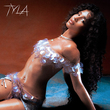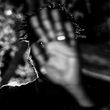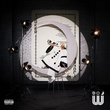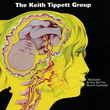[English Translation]
Yoshida Yohei group - “paradise lost, it begins”
The ‘black’ness seen as modern pops
Interview & text by Shino Okamura
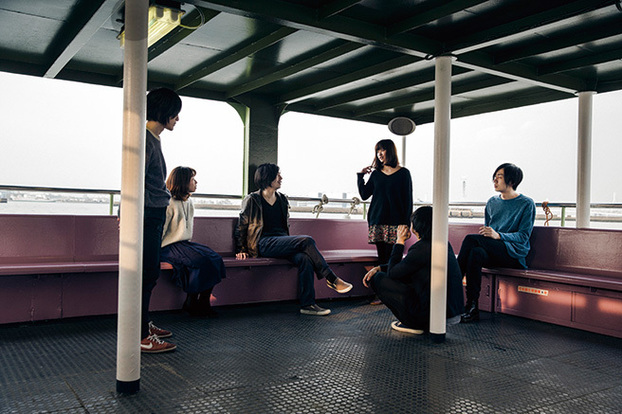
The heightening of the guitar frenzy
“Whenever I find a talent glowing among the members, I tend to lay special focus on his/her performance to include in the tracks. Over the past year, Nishida-kun (Shuta Nishida –guitar) has been making great advances, so it was just natural for tracks that featured him make their way on to the line-up.” (Yohei Yoshida – vocals/guitar/alto sax.)
With their performances/music dynamically passing on music from the approach of jazz or R&B to rock~pop music, Yoshida Yohei group has become [the new face of Tokyo] overnight, and they are now making their way to the next new stage. With Aya Naito on bassoon and Yosuke Enoki on tenor sax, both who were present at the production of the band’s 2nd album “Smart Citizen” released last year, leaving the band one after the other, the band was forced to face a turning point. However, Yoshida, as the leader, changed this tough corner into an opportunity with his flexible approach by shifting away from the existing structure of centering the ensembles around the wind instruments that were representing the image of the band. And the outcome is this latest album, “paradise lost, it begins.” Yoshida and Nishida sat down with us to talk about this latest piece of work. Hearing what they say, it seems that the growth of the tall guitarist constantly playing out strange riffs or phrases from the edge of the stage became the motivator of steering the band towards a new chapter.
“I’m the one who makes the main parts of the song, but there was a time I wanted something a bit more but in the same sensibility as mine, so I reached out to Nishida-kun at the studio and he came back with something really satisfactory. Until about the previous album, his guitar-play was more rigid, like it would drive people away. But now it’s more engaging and winsome, and I feel a lot safer with handing things to him now.” (Yoshida)
“Becoming able to share the same sensibility with Yoshida-san was pretty significant for me. Actually, Yoshida-san is playing guitar more than the previous “Smart Citizen”, and the guitar frenzy of both of us got really heightened, leading us to buy different kinds of effectors and try out new bridges etc.” (Nishida)
In fact, almost all the tracks on the album are guitar-centered. Various kinds of techniques like sweep picking or shredding are applied, also making great use of effects etc… And in the end, there are a good 7 tracks out of the total of 11 featuring the simultaneous guitar-play by Nishida and Yoshida. Still, it does not sound like a so-called guitar-battle, nor do the fine phrases they play intertwine with each other, and because they hit the strings completely differently from each other, the beats supported by Kyohei Takahashi’s drums or Rikito Hoshi’s bass remain unaffected, even if Wakana Ikeda joins in with fast passages or reddam attacks the keyboard fiercely. And as a result, there are now more tracks structured to make the melodies and various riffs of each part, mainly the guitar, spatter around.
“But it’s not like we decided from the beginning that we will go with the guitar placed at the center. It was more like we finally realized that that was the way each piece of work was when we came to the stage of mixing. Though, the points where we wanted to make sure the high notes sound clearly had been decided upfront. TV On The Radio, My Brightest Diamond or St. Vincent, - music that I am impressed with are usually those that hit the high notes beautifully. It came to me that perhaps that is the key to making the sounds have a modernistic feel to them. So then I tried mixes by bringing the guitar notes shrilling high.” (Yoshida)
And this is not all
High, rather than low. Tone, clean and smooth, rather than rough. The resounding persistence to the quality of sound that Yoshida Yohei group aimed for that was demonstrated in the latest album on the basis that it would be modern-sounded, may give one the impression that it was derived from today’s synth-pop or city pop lately being reevaluated. However, it was actually fusion, AOR or jazz funk, the kind expressed, in particular in songs like their “Captain Proverb” in which male and female vocals cross each other that they referred to. Stated differently, it was always ‘black music seen as pop music’ that has been the roots of the group from ever since they formed the band, that they were referring to.
“Weldon Irvine’s “I Love You” was the inspiration for our “Captain Proverb”. It was a track I found so difficult to dictate and pick up the chords, so I asked Wakana-chan to transcribe the music on to a score and analyze the chords structure. With that, so many ideas came into my head. Until then, I hadn’t been using modulations in an effort to generate popness, but this Irvine track has a pretty proper modulation during the song. Given that, I thought I’d give it a go too, and managed to put in a modulation during the verse. Then it came to me that this may be good enough to throw in some Larry Carlton-ish guitar. That’s kind of how the song came about. But of course that by itself will not necessarily make the track modern, so I made a mix that would fully bring out the high notes.” (Yoshida)
Put simply, it’s an album that enhanced with a mechanical structure, and that would let the listener fully feel the speed by chasing each and single note that is scattered all over the tracks. Most naturally, the role of the female backing chorus, that is one of their big appeals, has changed significantly. Many of the latest tracks have Kuro (from the dub band TAMTAM), who lately has been appearing frequently as support member for live gigs, act as the backing chorus together with reddam, but in “U.F.O”, for example, the chorus sounds flat and emotionless like female robots.
“Exactly, that is the result of intentionally containing all the emotions. I gave directions for the female vocals. When we checked against the instruments, it came to me that it would be better to make the song planar.” (Nishida)
“Nishida-kun has been telling me that ‘you haven’t been writing chorus parts lately’ (laughs). So I asked Kuro-chan to help us out because I knew she’d be able to sing high-key choruses and since then, I’ve become so much able to write chorus parts. For solo-sung songs, I had both Kuro-chan and reddam attempt many ways of singing, but in this album, it worked better by having them keep their emotions contained.” (Yoshida)
“But of course there is so much possibility that this sense might be overthrown in the future. This album demonstrates the best of what we want to do now, but of course, this is not ‘all’ that we have.” (Nishida)


